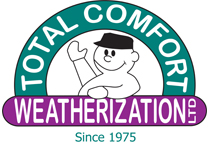New OHA tool connects people with latest COVID-19, influenza, RSV trends
PORTLAND, Ore.—New Oregon data dashboards will allow people to better track trends in activity of respiratory viruses – including COVID-19, influenza and respiratory syncytial virus (RSV) – in communities.
Oregon’s Respiratory Virus Data dashboards, published on Oregon Health Authority’s (OHA) website, have been updated for the 2023-2024 respiratory virus season to help connect people with the latest COVID-19, influenza and respiratory syncytial virus (RSV) trends in Oregon. The agency’s Acute and Communicable Disease Prevention Program (ACDP) launched the interactive data dashboards, which include reported data for all three respiratory viruses.
Understanding these trends will help the public, state and local agencies, and community organizations prepare for and respond to COVID-19, influenza and RSV activity this season, said Melissa Sutton, M.D., medical director for respiratory viral pathogens at the OHA Public Health Division.
“Every respiratory virus season is a bad respiratory virus season,” Sutton said. “But this data puts us in a position to more quickly assess what is happening in Oregon, and direct resources appropriately, including assisting local public health authorities with outbreak response.”
OHA continues to report on COVID-19 hospital bed use, COVID-19 variants and COVID-19-associated deaths. Links are provided to COVID-19, influenza and RSV hospitalization rate and emergency department visit data for Oregon, as reported by the Centers for Disease Control and Prevention (CDC).
Among the new Respiratory Virus Data dashboards is an updated version of the Oregon Respiratory Viral Pathogen Wastewater Monitoring Dashboard. The dashboard displays information from wastewater samples that wastewater treatment facilities submit to Oregon State University scientists for testing for traces of influenza, RSV and SARS-CoV-2, the virus that causes COVID-19. The dashboard includes a map of Oregon with locations of participating wastewater treatment facilities, virus concentrations and trends in virus levels – ranging from “sustained decrease” to “sustained increase,” indicated by color – found at those sites.
“These wastewater data really give us a good sense of where community transmission is dropping or rising and help us know what’s coming in terms of community spread and disease severity, such as hospitalizations. This helps individuals decide when to take additional precautions such as masking in crowded indoor settings,” Sutton said.
For more on these respiratory viruses read The flu, COVID-19 and RSV: What you need to know.
To subscribe to the weekly influenza and RSV reports, visit the FluBites and RSV-Oregon websites.
###









